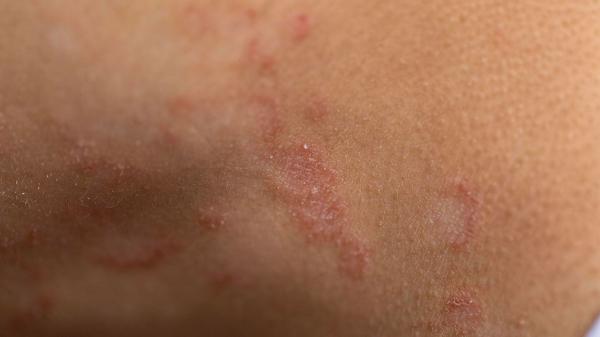| Ringworm, a fungal infection, is treated with antifungal medications available over-the-counter as creams, lotions, or powders like clotrimazole, miconazole, or terbinafine, applied directly to the affected area for several weeks as directed. For more extensive or persistent cases, a doctor may prescribe stronger oral antifungal medications. Maintaining good hygiene, such as keeping the affected area clean and dry, and avoiding sharing personal items, is also crucial for preventing the spread of the infection. If symptoms don't improve after a few weeks of self-treatment, or if you suspect a secondary bacterial infection, consult a doctor. 
Ringworm, despite its name, is a fungal infection, not a worm. Treatment depends on the severity and location of the infection, but generally involves antifungal medications. Do not attempt self-treatment for extensive or severe cases. See a doctor or dermatologist for diagnosis and treatment.
Here's a breakdown of common treatment options: - Over-the-counter (OTC) antifungal creams: For mild cases of ringworm on the skin (not scalp or nails), OTC creams containing clotrimazole, miconazole, terbinafine, or ketoconazole are often effective. Follow the instructions on the packaging carefully, and continue treatment for at least a week *after* the rash clears to prevent recurrence.
- Prescription antifungal medications: For more severe cases, or if OTC treatments fail, a doctor may prescribe stronger antifungal creams, lotions, or oral medications (like griseofulvin or terbinafine). Oral medications are often necessary for scalp ringworm or nail infections.
- Keeping the area clean and dry: This is crucial to prevent the spread of the infection. Gently wash the affected area daily with mild soap and water, and pat it dry thoroughly. Avoid scratching, as this can spread the infection.
- Avoiding sharing personal items: This includes towels, clothing, bedding, and razors, as ringworm is contagious.
Important Considerations: - Diagnosis: It's important to get a proper diagnosis from a healthcare professional to ensure you are treating ringworm and not another skin condition. They can also help determine the best course of treatment.
- Scalp ringworm: Scalp ringworm requires specific treatment, often involving oral antifungal medications, and should always be treated by a doctor.
- Nail ringworm (onychomycosis): This is a particularly stubborn infection and usually requires long-term treatment with oral antifungal medications.
- Severe or widespread infection: If the ringworm is extensive, painful, or accompanied by other symptoms like fever or swollen lymph nodes, seek immediate medical attention.
In short, while OTC creams can be effective for mild cases, it's always best to consult a healthcare provider for diagnosis and treatment, especially for persistent or severe infections. They can accurately identify the fungus and recommend the most appropriate and effective treatment plan. 
Tags: Antifungal Medications Fungal Infection OTC Creams Ringworm Ringworm Treatments  
|  1,408
1,408  0
0  0
0  3350
3350 
